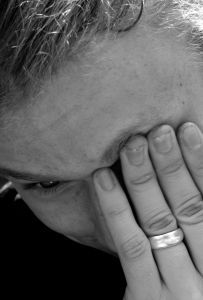Fort Myers car accident attorneys recognize that in crash cases, there are numerous situations in which a third party can be held responsible for the at-fault driver’s actions.

Per the doctrine of vicarious liability, there are instances wherein the owner of the vehicle could bear some of the burden. So too might the driver’s employer, if he or she was working or driving a company vehicle at the time of the crash. Additionally, the parent of a minor behind the wheel or anybody who served alcohol to the driver just before the crash could face liability.
While the courts in Florida have allowed a broad application of this theory, Florida’s Third District Court of Appeal recently narrowed scope in the case of Miccosukee Tribe of Indians of South Florida, etc. v. Bermudez. Even while sympathizing with the plaintiff and chastising the defendant American Indian tribe for refusing to pay the settlement agreement in lieu of continuing to defend a drunk driver, the court ruled there was still no legal basis to force the tribe to comply.
If the court were to allow such a precedent to stand, the justices ruled, the implications could be far-reaching and troublesome. To understand why, we need to first analyze the facts of this case.
According to court records, this case first began in the late 1990s, when a woman was killed and her husband and son seriously injured in a crash caused by a drunk driver, who was a member of the Miccosukee Tribe of Indians of South Florida.
The woman’s surviving family sued the woman and her father on the grounds of negligence (the driver) and vicarious liability and negligent entrustment of dangerous instrumentality (the father, who owned the vehicle) and won. A jury in 2009 awarded the family $3.1 million in damages.
But so far, the family has yet to see a dime of that money. The woman and her father say they have no assets to pay it.
Meanwhile, the tribe has footed the bill for all legal costs over the years, and has continued to pay for their ongoing defense in the civil cases.
When the family couldn’t collect from the daughter or her father, they sought payment from the tribe, arguing it had funded and guided the defense. A trial court agreed, ordering the tribe to pay $4.1 million, which represented the original judgment, plus interest.
The tribe appealed.
The surviving family argued case law allowed non-litigants in a lawsuit to be held liable for the actions of litigants. However, the appellate court ultimately determined those cases either weren’t directly applicable or that the interpretation given by the plaintiff was overly-broad.
For example, the plaintiff cited the cases of Abu-Ghazaleh v. Chaul, Lage v. Blanco and Visoly v. Sec. Pac. Credit Corp., in arguing there were cases in which third parties had to pay for legal fees. However, the court noted that each of these dealt only with payment of attorneys’ fees – not the entirety of compensatory and punitive damages.
To enact such a mandate, the court held, would have a chilling effect on the justice system. The court cited, for example, the possibility that a parent helping a child pay for legal costs might refrain from doing so if he or she believed personal liability was a possibility.
As such, the lower court’s ruling was reversed. While this case was not decided in favor of the plaintiff, it illustrates why it’s critical to identify all responsible parties at the outside of a personal injury or wrongful death lawsuit.
Call Associates and Bruce L. Scheiner, Attorneys for the Injured, at 1-800-646-1210.
Additional Resources:
Miccosukee Tribe of Indians of South Florida, etc. v. Bermudez, July 2, 2014, Florida’s Third District Court of Appeal
More Blog Entries:
Coomer v. Kansas City Royals – Inherent Risks Assumed by Sports Fans, July 7, 2014, Fort Myers Car Accident Lawyer Blog
 Florida Injury Lawyer Blog
Florida Injury Lawyer Blog





